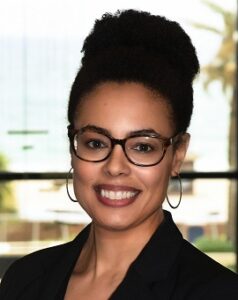Population Research Discovery Seminars

Stepping Out of Your Cultural Zone: Gentrification, Aging in Place, and the SHARP Study
Raina Croff, Assistant Professor, Neurology, NIA-Layton Aging and Alzheimer’s Disease Center, Oregon Health & Science University
Register for Zoom Seminar HERE
05/27/2022
12:30-1:30 PM PT
Co-Sponsor(s):
Black Americans are disproportionately vulnerable to gentrification and to cognitive decline, including Alzheimer’s disease, because of historical and ongoing systemic inequities. Dr. Croff examines the impact of gentrification on healthy aging among minoritized older adults, looking specifically at how aging in place within gentrifying neighborhoods may exacerbate risk factors for cognitive decline. Amidst erasure of Black spaces and elevated health risks for older Black people, it is critical to develop culturally celebratory ways to preserve health and history. The Sharing History through Active Reminiscence and Photo-imagery (SHARP) study aims to do this through integrating walking, conversational reminiscence, and technology in Portland, Oregon’s historically Black neighborhoods, and is now being replicated in Seattle’s Central District. Alongside promising health outcomes, SHARP community focus groups and walking narratives give voice to the older Black experience of aging, gentrification, cultural incongruence, and community displacement.
Raina Croff, PhD is Assistant Professor of Neurology at the NIA-Layton Aging and Alzheimer’s Disease Center at Oregon Health & Science University. She is Founder and Chair of the Neurology Department’s Diversity, Equity, and Inclusion Committee, is an American Academy of Neurology Diversity Leadership Program Scholar, and is passionate about providing valuable research opportunities for emerging scholars of color. Dr. Croff’s work focuses on the implications of gentrification on Black older adults’ cognitive health and increasing physical and social activity for healthier aging in ways that celebrate culture, history, and community memory. She received a PhD in Anthropology from Yale University. Bringing her cultural training to qualitative health research at Oregon Health & Science University, she has collaborated on projects examining African Americans’ understanding of Alzheimer’s Disease and barriers to healthier aging, older African American mindfulness, American Indian and Alaska Native traditional and evidence-based substance use treatment, and more. Her work has been funded by the CDC Healthy Aging Program, the Alzheimer’s Association, and the National Institute on Aging.